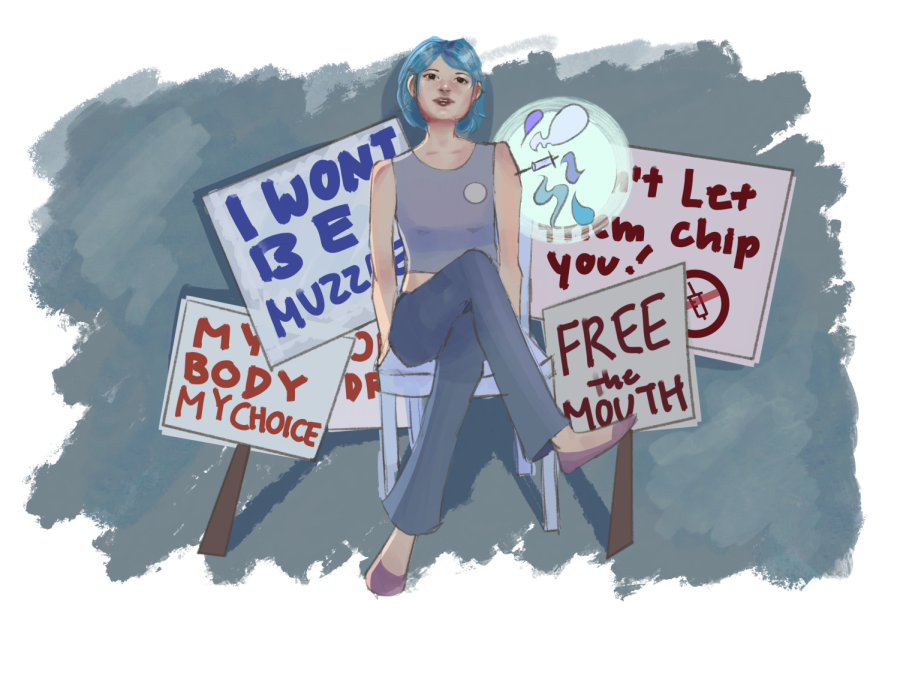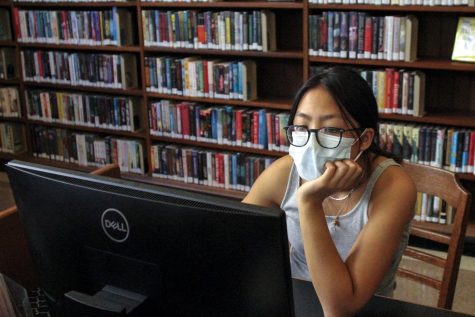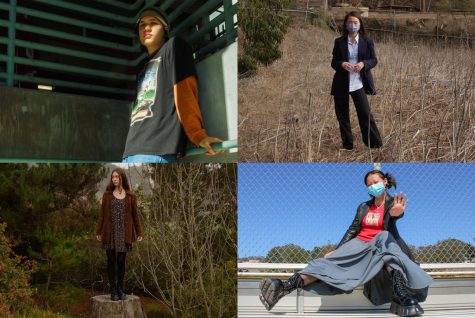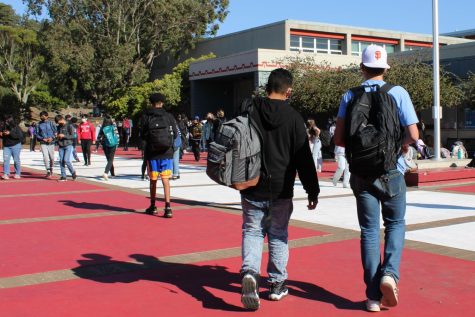Vaccine mandates are the key to a post-pandemic world
On October 1st, 2021, California Gov. Gavin Newsom announced the implementation of a state-wide COVID-19 vaccination mandate within schools, the first of its kind in the country. It would be implemented as soon as vaccines for children aged 12 and older were eligible for COVID-19 vaccines, which is expected to happen in the coming weeks. Though overdue, this is the right move towards keeping students and their families safe. However, this mandate is likely to face significant legal challenges and backlash.
Although many question the constitutionality of vaccine requirements, extensive historical precedent has proven time and time again that government-issued vaccine mandates are not only legal, but a necessary part of fighting infectious diseases.
Throughout the pandemic, it’s been made clear that district-wide vaccine mandates are the right choice: mandates had already been implemented in some California school districts prior to Gov. Newsom’s announcements. In August of 2021, L.A. Unified School District, the second-largest school district in the nation issued one of the first district-wide COVID-19 vaccine mandates in America. A small but growing number of school districts rightfully followed suit, including Oakland Unified and San Diego Unified School District. These districts set a bold precedent for how vaccine mandates would play out in larger school districts, and California’s mandate is a necessary step towards ensuring the safety of students.
Additionally, vaccine mandates have historically been a vital part of protecting communities’ public health. The first vaccine mandate in the United States can be traced all the way back to 1809, with Massachusetts’ smallpox vaccination law. Currently, all SFUSD students must be vaccinated against the viruses tetanus, diphtheria, pertussis (Tdap), and chickenpox before entering the 7th grade. Incompliant students are not allowed to attend school, barring any proven medical exemptions. There is ample precedent for vaccine mandates, and any challenge to the logistics of vaccine mandates goes against our country’s extensive history of requiring vaccinations.

Parents of students across the nation have already disrupted school board meetings and accosted officials in an attempt to reverse school-wide vaccine mandates, and Gov. Newsom’s COVID-19 vaccine mandate is likely to face fierce backlash. One of the most widely used arguments by these protestors is that mandates intrude on certain “constitutional rights” promised to us. Republican Senator Ted Cruz, a vocal opposer of vaccine mandates, labeled federal vaccine mandates as “authoritarian,” arguing that they infringe on Americans’ liberty. However, exercising our constitutional right to liberty at the cost of societal wellbeing is unconstitutional in and of itself; it potentially robs other people of their right to life, liberty and the pursuit of happiness. Governments executing their responsibility for protecting public health by enacting vaccine mandates is as American as it gets. The Supreme Court echoed this sentiment in the 1905 case Jacobson vs. Massachusetts, which upheld the legality of state-issued mandates against a man challenging the validity of smallpox vaccines. Parallel to the situation we find ourselves in, citizens had an obligation to minimize the threat of smallpox by any means necessary. COVID-19 vaccines serve no purpose other than to protect citizens. There is no constitutional right to refuse them during a pandemic that threatens the lives and livelihoods of millions.
In fact, the same Constitution being invoked by anti-vaxxers actually makes a case for vaccine mandates. The Constitution promises the fundamental “rights to life” for all Americans, which can, and should, be protected through preventative measures such as the requirement of mass vaccinations. Staff, faculty, and students at Lowell and other high schools don’t solely exist within the confines of our school grounds; they return home, often to spouses, parents, and siblings. Younger children are especially vulnerable, as vaccines have yet to be approved for those under 12 years old. Minimizing the number of unvaccinated individuals within our school environment is the easiest method of limiting exposure to the virus. This simple policy change will reduce the risk of further spread and protect those who are only a bus trip or car ride away from exposure.

Admittedly, some students may also be allergic to certain components in vaccines, although these cases are extremely rare, and treatable. To accommodate this, schools should follow the example of universities with mandates in place, such as Harvard University, which allows unvaccinated students on campus on the condition that they submit semiweekly negative COVID-19 tests and self-screen more rigorously than vaccinated individuals. Although not as effective and practical as getting vaccinated, alternative solutions must be offered by the state for those who face medical barriers to receiving COVID-19 vaccines.
Mandating vaccines will help ensure a safe, healthy school year for all students and staff at secondary school campuses. Currently, the future of in-person schooling remains tentative at best, and reported positive cases within campuses send waves of uncertainty through families. California setting the standard for requiring inoculation within schools will ensure that our return to in-person learning is here to stay. It’s time for us to recognize that vaccine mandates are a crucial, necessary step towards normalcy.

Chloe is a senior, but still doesn’t really feel like one. One thing she’s proud of are her spotify playlists, which include every genre imaginable (yes, even country). Outside of the journ room, she loves taking long drives, writing, and thrifting.









